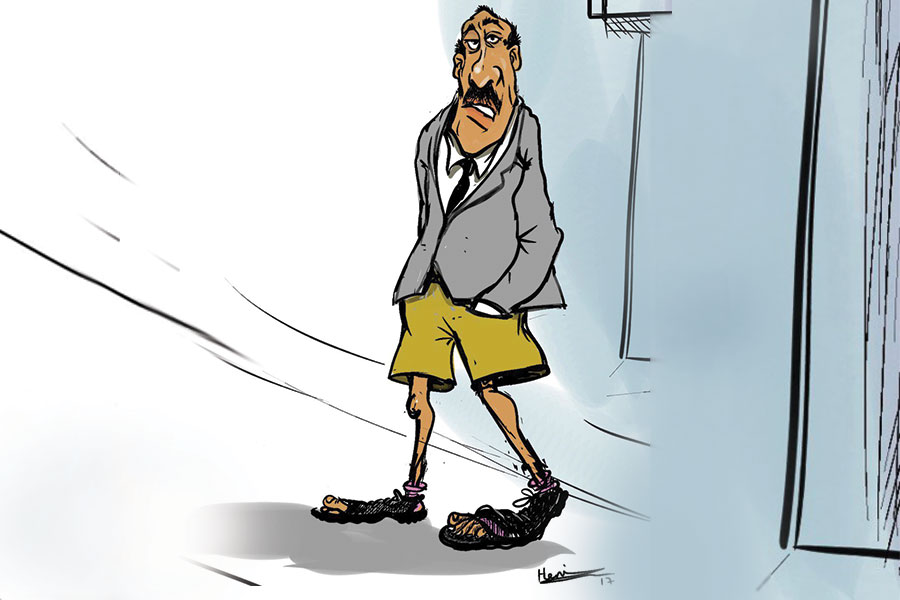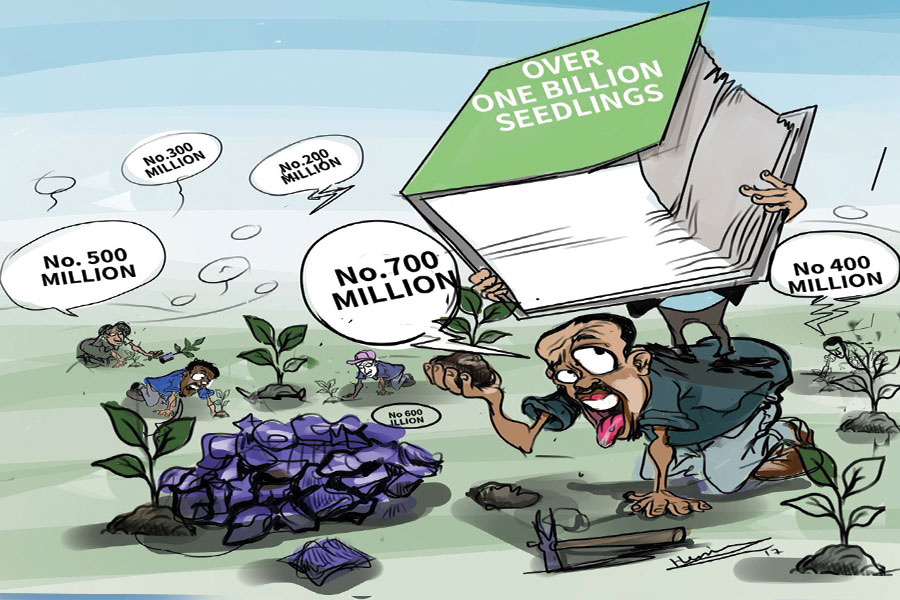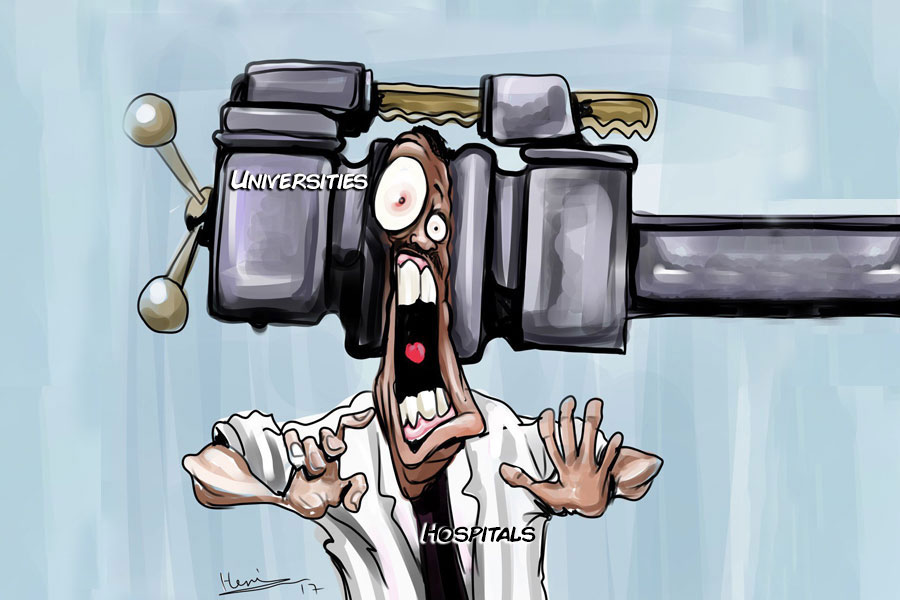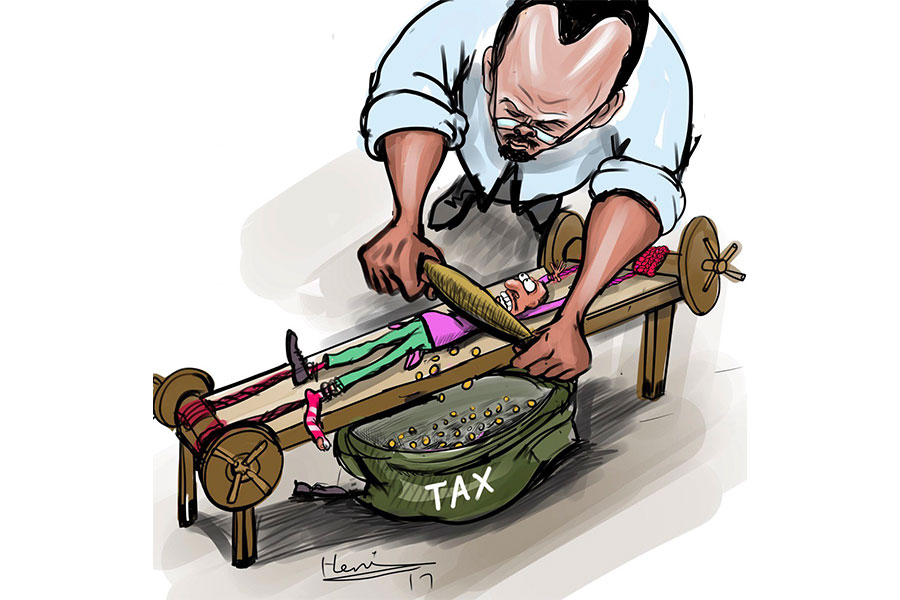
My Opinion | 133315 Views | Aug 14,2021
Aug 9 , 2025. By Kidist Yidnekachew ( Kidist Yidnekachew is interested in art, human nature and behaviour. She has studied psychology, journalism and communications and can be reached at (kaymina21@gmail.com) )
A few days ago, I boarded a crowded taxi where a simple act of charity sparked a spirited debate. A woman handed money to a Syrian refugee, prompting a heated conversation about who deserves support more, a refugee or a local beggar. The moment felt raw and charged, pushing each passenger into an unplanned moral reckoning. It became a study in compassion, judgment, and the quiet assumptions people carry.
The woman gave a 50 Br note to a Syrian woman sitting near the roadside. Seconds later, an Ethiopian beggar, someone familiar with the area, approached her as well. This time, she offered him only a scornful glance and waved him away. That single act drew instant attention and discomfort from those inside the taxi.
A low murmur spread through the passengers before one finally voiced the shared discomfort. He asked why she gave money to the refugee but turned away the local man with such coldness. His tone remained calm, though the question struck a nerve. The woman, seemingly unshaken, offered a deliberate and composed response.
She explained that the refugees' needs felt more genuine to her. She believed the woman would use the money to feed her family, having been forced to flee her home. In contrast, she recognised the local man as someone who drank heavily and avoided work. Her distinction hinged on perceived desperation versus chosen dependence.
Structural inequality plays a role, but so does belief in one's capacity to overcome it.
Silence swept over the taxi as her answer settled into the space between us. Her argument, though controversial, carried weight and clarity. She positioned herself not as unkind, but as someone who considered the intention behind her giving. That distinction, however subjective, shifted the tone of the discussion.
After a brief pause, a younger passenger challenged her view with another story. He had heard that some Syrian refugees used donations to buy fast food or take luxury taxi rides. His implication was clear: not all acts of charity are used wisely. It questioned whether visible suffering always aligned with responsible use.
The woman met the critique without flinching. She acknowledged the possibility but defended her action. At least, she said, they spent the money on nourishment or progress. That, to her, was fundamentally different from squandering help with no vision for escape.
To reinforce her point, she shared a striking anecdote. An old woman, she said, had saved over 100,000 Br from years of begging, refusing to spend any of it. When the government demonetised the old currency, she lost everything because she never exchanged it. That story became a cautionary tale about misplaced purpose and missed opportunity.
The woman made clear she was not condemning every beggar. She admitted many faced conditions so harsh that begging became a necessity, not a choice. Still, she admired refugees who aimed for self-sufficiency. In her experience, some used begging as a means to an end, not a permanent condition.
She recounted seeing Syrian women pool their earnings to open shops and street food stalls. Some began selling perfumes or cosmetics, determined to rise beyond dependency. Their ambitions, however small, inspired her. She saw in them a hunger not just for survival but for dignity and transformation.
Throughout the exchange, I listened quietly, letting the words stir my own reflections. I understood the woman's logic, even if parts of it made me uneasy. She spoke from observation, not malice, and her insight forced uncomfortable but necessary questions. When dependency becomes habitual, even well-meant charity risks becoming meaningless.
The conversation lingered in my mind long after I left the taxi. It led me to consider the broader implications of social reliance. In a society where dependency is normalised, ambition can easily wither. Structural inequality plays a role, but so does belief in one's capacity to overcome it.
For those without safety nets, survival often fuels creativity and resilience. In contrast, guaranteed help might dull the urgency to act. This does not mean the poor should fend for themselves; instead, it demands that giving must empower, not entrench helplessness. The balance between empathy and expectation is delicate but necessary.
What began as a routine taxi ride turned into a revealing portrait of urban generosity and scepticism. The debate illuminated how people weigh need, intention, and personal responsibility. No answer was simple, and perhaps that was the point. Every act of charity carries with it an invisible calculus that says more about the giver than the receiver.
PUBLISHED ON
Aug 09,2025 [ VOL
26 , NO
1319]

My Opinion | 133315 Views | Aug 14,2021

My Opinion | 129827 Views | Aug 21,2021

My Opinion | 127644 Views | Sep 10,2021

My Opinion | 125192 Views | Aug 07,2021

Aug 9 , 2025
In the 14th Century, the Egyptian scholar Ibn Khaldun drew a neat curve in the sand....

Aug 2 , 2025
At daybreak on Thursday last week, July 31, 2025, hundreds of thousands of Ethiop...

Jul 26 , 2025
Teaching hospitals everywhere juggle three jobs at once: teaching, curing, and discov...

Jul 19 , 2025
Parliament is no stranger to frantic bursts of productivity. Even so, the vote last w...